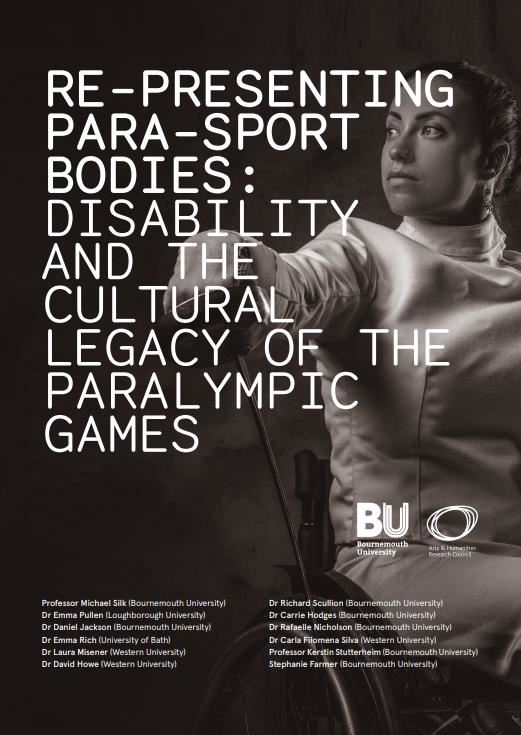 We are pleased to announce the publication of a new report on the broadcasting of the Paralympics in the UK.
We are pleased to announce the publication of a new report on the broadcasting of the Paralympics in the UK.
Free to download from: http://pasccal.com/pasccal-project-report/ or direct download: http://pasccal.com/wp-content/uploads/2019/12/BU-3-Paralympic-Report-6.4.pdf
This report details the findings of the AHRC project entitled ‘Re-presenting Para-sport bodies: Disability and the cultural legacy of the Paralympic Games’. The project explored media constructions of disability through Paralympic sport and the impact on public attitudes and perceptions of disability. This report provides data and recommendations drawn from the first funded academic project to examine the implications of the rapid commercialisation of the Paralympic Games and the increasing visibility of disability in the media; influenced by the success of Channel 4’s entry as the United Kingdom’s official Paralympic broadcaster in 2012.
Through an integrated methodological approach, we provide a joined-up evidence base that captures the intentions and practices of Channel 4’s (C4) broadcasting of the Rio 2016 Paralympics; the influence of this on the content of Paralympic coverage and mediated forms of disability representation; and the wider impact on public attitudes toward disability. This approach allowed us to examine the important and influential relationship between Paralympic production practices, progressive social change and cultural legacies.
The report demonstrates the important cultural impact of the Paralympic Games and the extent socially progressive forms of disability representation can and do effect positive social change with respect to disability awareness. We argue that both the quality and quantity of Paralympic coverage by C4 has been an important vehicle in progressive forms of disability representation marked by greater inclusion, education, and visibility of disability. Here, we highlight some of the complexities and contradictions in the Paralympic legacy with respect to issues of inclusion and exclusion, empowerment and disempowerment, and forms of marginalisation. Through the report we provide a number of empirically-driven insights for progressive and sustainable Paralympic cultural legacies.